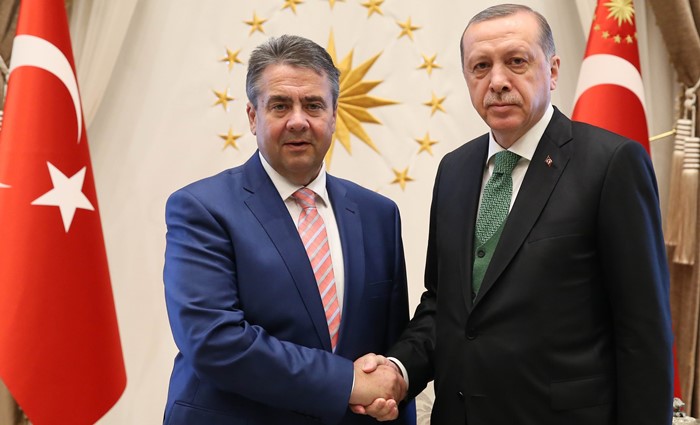German Foreign Minister Sigmar Gabriel has announced that his country is going to withdraw troops and aircraft taking part in missions against the Islamic State in Iraq and the Levant (ISIL) from Turkey as a result of Turkey’s refusal to allow German lawmakers to visit German troops at İncirlik Airbase in southern Turkey.
Gabriel said during a visit to Ankara on Monday that Turkey had left his country no choice but to begin pulling out its forces after last-ditch talks to resolve the issue broke down.
“We will have to move the troops out of İncirlik. The Bundeswehr cannot stay there,” he said after talks with his Turkish counterpart, Mevlüt Çavuşoğlu.
“Turkey has made clear that for domestic political reasons, it cannot approve visits by any MPs. Turkey must understand that in this situation, we must transfer German soldiers out of İncirlik.”
Germany has 260 troops and several Tornado aircraft flying reconnaissance missions for Western air strikes against ISIL based at Turkey’s İncirlik Airbase. They are likely to be moved to Jordan.
Tension between Germany and Turkey escalated over the arrest of two Turkish-German journalists on terrorism charges and Berlin’s decision to grant asylum to military officers and other diplomatic passport holders who Ankara accuses of involvement in a failed coup attempt on July 15.
The tension turned into a crisis when the Turkish government blocked a group of German lawmakers from visiting troops stationed at Turkey’s İncirlik Airbase on May 15.
Gabriel reportedly demanded a written assurance that German MPs would be allowed to visit the troops; however, the Turkish foreign minister countered by claiming that some German MPs are in contact with the rebel Kurdistan Workers’ Party (PKK) and could not be allowed on the base for security reasons.
The PKK, which has been waging a bloody war in Turkey’s southeast since 1984, is listed as a terrorist organization by Turkey, the EU and the US.
Çavuşoğlu offered to allow visits to German troops stationed at another base in Konya, but refused it for İncirlik.
The Turkish foreign minister also demanded the extradition of more than 400 diplomatic and official passport holders to Turkey who sought refuge in Germany in the aftermath of the coup attempt on July 15.
“If Germany takes one positive step toward us, we will take two,” he said.
From July 15 to the beginning of May, 414 officers, diplomats, judges and high-level state officials and their families have applied for asylum in Germany, according to reports.
The military coup attempt on July 15 killed over 240 people and wounded more than a thousand others. Immediately after the putsch, the Justice and Development Party (AKP) government along with President Recep Tayyip Erdoğan pinned the blame on the Gülen movement.
Fethullah Gülen, who inspired the movement, strongly denied having any role in the failed coup and called for an international investigation into it, but President Erdoğan — calling the coup attempt “a gift from God” — and the government initiated a widespread purge aimed at cleansing sympathizers of the movement from within state institutions, dehumanizing its popular figures and putting them in custody.
According to a report by the state-run Anadolu news agency on May 28, 154,694 individuals have been detained and 50,136 have been jailed due to alleged Gülen links since the failed coup attempt.
The head of Germany’s Federal Intelligence Service (BND), Bruno Kahl, said in march that Turkey could not convince them that US-based Turkish-Islamic scholar Gülen was behind the failed coup in July.



